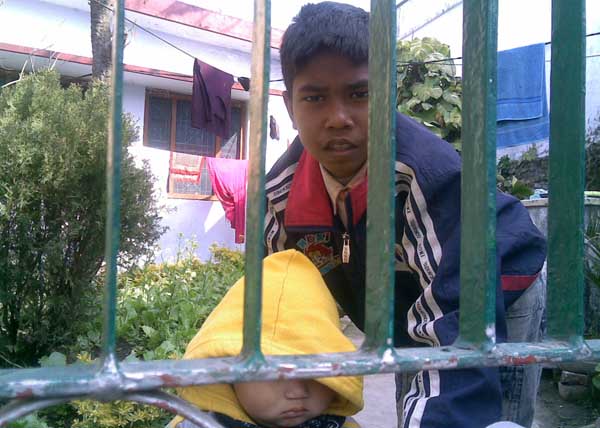 Dharamshala: In Tibet, the word for servant translates very nearly to the word for slave, and child labors working in the Tibetan community are not that different from slaves. Trinley Gyatso is the India representative for Swiss-Tibetan organization, Human Steps. Human Steps currently works in the Tibetan community raising awareness of Indian child labor laws and international conventions against the practice. June 12 of this year is world child labor day, Mr. Gyatso hopes that it will help him to expose the practice child labor in the Tibetan community.
Dharamshala: In Tibet, the word for servant translates very nearly to the word for slave, and child labors working in the Tibetan community are not that different from slaves. Trinley Gyatso is the India representative for Swiss-Tibetan organization, Human Steps. Human Steps currently works in the Tibetan community raising awareness of Indian child labor laws and international conventions against the practice. June 12 of this year is world child labor day, Mr. Gyatso hopes that it will help him to expose the practice child labor in the Tibetan community.Child labor is prohibited in international and national law. In 1989, the United Nations General Assembly adopted the convention on the Rights of the Child, that bans children from being economically exploited or from work that interferes with the child’s education or could be harmful to the child’ s mental, physical, spiritual health, moral or social development. In 2006 India passed India passed the Child Employment Act, which is less comprehensive but makes it a criminal offence to employ school –aged children (under 16) to work in such a way that it interferes with their schooling
Mr. Gyatso said “it is clear from the international and national laws that it is not allowed to employ children but either some Tibetans ignore the laws or are unaware of the laws.”
UNICEF released a statement that clearly shows children in India at risk for being exploited by child labor. “Children living in the poorest households and in rural areas are most likely to be involved in child labor. Millions of children work to help their families in ways that are neither harmful nor exploitative. But one in six children 5 to 14 years old, about 16 per cent of all children in this age group, is involved in child labor in developing countries.”
Mr. Gyatso’s research puts a human face behind UNICEF’s findings “I met a women in Dehradun, she worked for a Tibetan family for 10 years, laboring 7 days a week 14-16 hours a day for 500 rupees a month, she is now 21 illiterate and like so many in her situation she doesn’t know her rights.”
According to the International labor organization (ILO), the numbers of child laborers in Himachal Pradesh increased from 71,384 in 1971 to 107,774 in 2001. Mr. Gyatso responds to these numbers, “there are many more than that who, like the women I met in Dehradun, have lived the majority of their lives inside doing housework, it is difficult to know how many of these children are working in homes and businesses and are never seen.”
As a Tibetan, Mr. Gyatso is a proud member of his community and he sees his work as a service to the Tibetan people, not a criticism “Human Steps is trying to educate the public and save the Tibetan community from child labor, it doesn't make any sense that we are fighting for our freedom and rights while taking away the rights and freedom of others.”


![Tibet has a rich history as a sovereign nation until the 1950s when it was invaded by China. [Photo: File]](/images/stories/Pics-2024/March/Tibet-Nation-1940s.jpg#joomlaImage://local-images/stories/Pics-2024/March/Tibet-Nation-1940s.jpg?width=1489&height=878)















